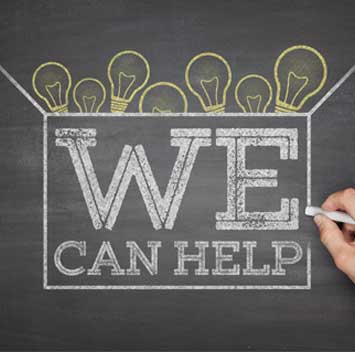If your partner has betrayed you through cheating or an affair, you may be experiencing flashbacks, excessive worry and memories. Here we will discuss what flashbacks and intrusive memories are and some ideas around how to overcome them.
Following the discovery that your spouse has been cheating, it can be a difficult feat to begin to overcome the thoughts, anger, hurt and feelings associated with this type of betrayal. Some betrayed spouses report flashbacks and memories related to an affair.
Things that can trigger flashbacks include spending time with your partner who cheated, romantic sounds, love stories, not hearing from your partner and sometimes they can just come out of the blue when you least expect it.
Being betrayed by a loved one can often be traumatic. Traumatic experiences can be followed by intrusive thoughts about the event such as images, thoughts and memories. Sometimes even images from the imagination can become intrusive.
If you are struggling to overcome the discovery of an affair, here are some ways you can work to overcome thoughts and memories that are interfering with your daily life:
Be present
Practice simple acts of working to stay in the moment. Be cautious to not escape through food, alcohol, drugs or other avoidance tactics. There are many different ways to practice being mindful and in the moment including yoga, breathing, and meditation. Even working to just do one thing at a time while focusing all of your attention on that task will help you to be present and more mindful.
One simple exercise to get you out of a flashback is to focus on your breathing for 5 breaths. Notice the air coming in and going out, notice how you feel, try to focus just on the act of breathing.
Journal
Write down things that you are thinking and feeling. Journaling is a very effective tool to help you deal with your negative emotions and to help you to let things go. The act of writing can help people to think of ways to deal with things and can even lead to new perspectives or self understandings.
By taking time to process through your feelings, you will be able to move through them more quickly than if you try to suppress or ignore them. Give yourself permission to write down all of your thoughts and feelings without censoring – this is for you.
Anticipate triggers
Pay attention to what thins trigger flashbacks for you and try to find ways to initially avoid these triggers. When your healing has progressed more, work to develop coping skills for managing your flashbacks. As with any anxiety-provoking thing, eventually you will want to work to expose yourself to your triggers so you can move forward. It is okay initially to avoid situations or experiences that may trigger your flashbacks.
Ride the wave
Some triggers will be impossible to avoid and some flashbacks will just come out of seemingly nowhere. For these I recommend “riding the wave” to do this you will experience the emotion you are having while imagining it wash over you and away from you like a wave. Sometimes we resist emotions, however by riding the wave you often end up more able to move forward from your emotion and flashback.
Be kind to your self
Forgive yourself for not catching on to it sooner or for any mistakes you are blaming your self for. Try to do things that you enjoy that will help you to get out of your thoughts.
Pay attention to doing the small things that will care for your mind body and soul. Eat a healthy and balanced diet, try to exercise for at least 20 minutes a day, take a class about something you want to learn, read a book, try to get at least 7-8 hours of sleep each night, etc… Do things to help you feel good about your self.
Don’t bring others in to it
Sometimes our urge can be to talk with others when we are hurt or struggling. Often it is good to talk with someone about emotions you are struggling to process, however with infidelity there can also be negatives to bringing others in to it.
The cautionary tale here is that if you decide to forgive your partner, your friends and family may not be as quick to do so. Sometimes these can lead to awkward relationships or even the loss of friendships. Be cautious not to bring others in to it, especially if you may stay with your partner.
See a therapist or counselor
If you feel the need to talk to someone, we recommend meeting with a therapist or counselor to process your feelings. Therapists are trained to help people process through difficult things. Sometimes it is best to talk with someone completely outside of your situation. In addition, a counselor will be able to provide you with a safe environment to process your feelings and thoughts without judgment and will be able to help you develop tools to move past it in the best way for you.
You may consider doing individual counseling, couples counseling or both. Either of these formats of counseling can be helpful in processing through an affair. Counseling can help you learn new ways of coping with the betrayal and resulting loss of trust. It can also help you decide if whether you want to continue in the relationship.
In summary it is important during this time that you focus on taking care of yourself and to learn ways to manage your emotions and flashbacks through healthy coping skills. If at any point you find yourself struggling to move past your flashbacks or intrusive thoughts, seek professional help. Knowing when to ask for help is a sign of strength, not weakness. To learn more about our services visit: https://www.collaborativemn.com/counseling-services/couples-family-therapy
Please note: This article is presented for information only and is not intended to substitute for professional therapeutic advice.
Read More


 View Our Locations
View Our Locations Request Appointment
Request Appointment








